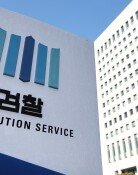Govt to Fine Energy-wasting Buildings
Govt to Fine Energy-wasting Buildings
Posted April. 25, 2008 06:27,
The government will phase in its own energy conservation measures of regulating the indoor temperature of buildings by 2011. It will also gradually expand the number of buildings subject to the energy efficiency regulation starting September.
The government will provide more tax benefits for those who own vehicles with the highest level of fuel efficiency, and expand the current passenger car-only lanes on expressways for the Seocho-Osan section to be effective seven days a week from July.
The National Energy Saving Commission, chaired by Prime Minister Han Seung-soo, approved the energy-saving plans at a meeting at the Government Complex in Gwacheon, yesterday.
With Dubai crude oil surging to $110 per barrel, the government released such measures to urge the people to save energy, which is no less important than energy development efforts overseas. Instead of just regulating neon signs or operation of bathhouses, the government now tries to save energy used by vehicles or buildings, which accounts for a larger share of the nations energy consumption.
The government plans to fine those who keep their homes and working places below 26 degrees Celsius in summer or above 20 degrees Celsius in winter.
It will revise relevant laws and introduce the new measures in stages. First, large public-purpose buildings, educational buildings and leisure facilities will become subject to the new rules next year. Large commercial buildings and residential buildings will be subject to the fines starting 2010 and 2011, respectively.
Apartment buildings built by state-owned agencies including the Korea National Housing Corporation must have energy-efficiency ratings higher than the second grade from next month. Also, private constructors will be granted to raise the floor space index if they raise energy-efficiency levels in their new apartments.
The government will strengthen its energy-efficiency standards in August. Those who own cars with the highest-level of fuel efficiency will get a 50 percent discount at public parking lots and on expressways, and be exempt from acquisition and registration taxes.
Starting 2010, in an effort to cut industrial energy consumption, the government will encourage top 500 energy-consuming conglomerates to save energy, and provide incentives for those that pass target levels.
The government will also introduce a synchronization system under which hikes in the prices of raw materials such as oil and coal is reflected in power rates. It intends to encourage the people to save energy by readjusting power rates. However, it has yet to decide when to introduce the system since increasing electric charges may put inflationary burden on commodity prices.
Lee Jae-hoon, vice minister for energy, said, Were planning to adjust the power rate system to market principles from a mid- and long-term perspective. However, it doesnt mean an immediate price increase.
changkim@donga.com




![“한동훈, 정치생명 걸고 무소속 출마해 평가받는 것 고려할만”[정치를 부탁해]](https://dimg.donga.com/c/138/175/90/1/wps/NEWS/IMAGE/2026/01/19/133186982.1.jpg)


